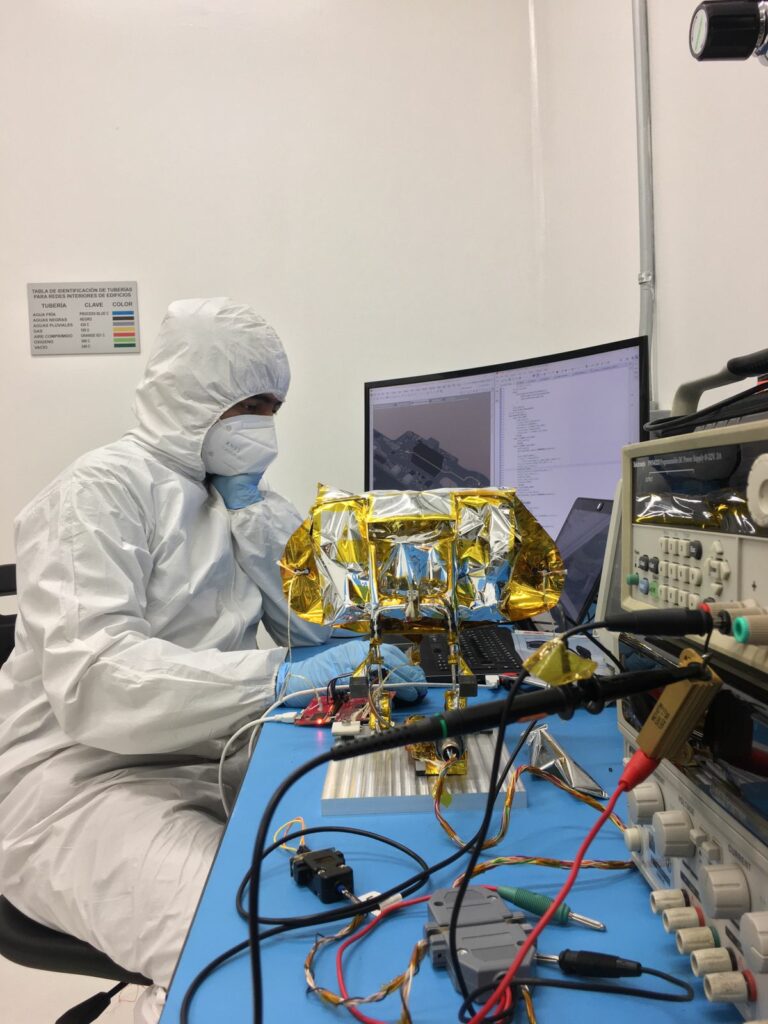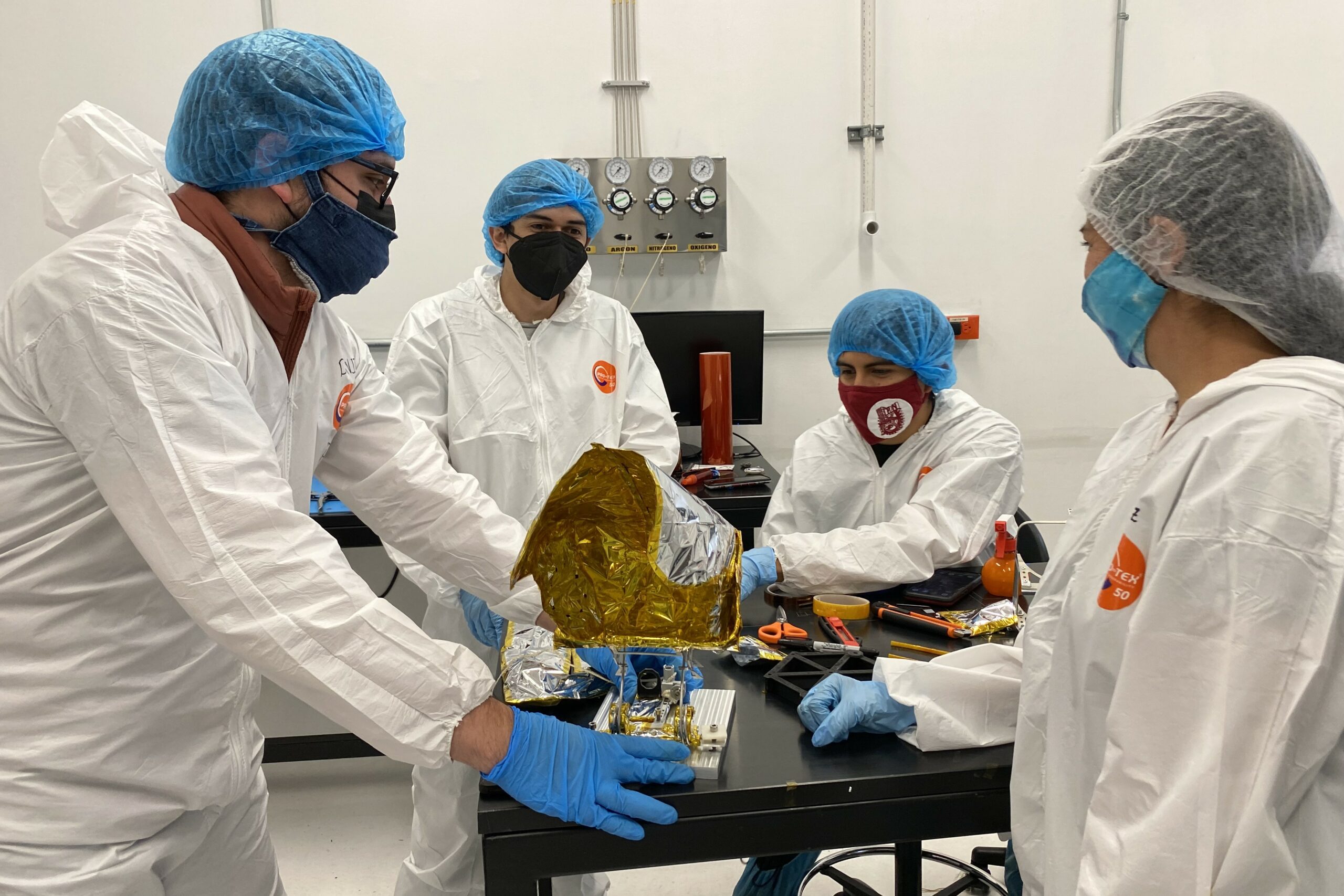Nuestro objetivo
Desarrollo de proyectos espaciales de alto impacto en ingeniería y ciencias básicas y aplicadas, con una fuerte componente de formación de recursos humanos en el sector espacial mexicano.
Desarrollo de proyectos espaciales de alto impacto en ingeniería y ciencias básicas y aplicadas, con una fuerte componente de formación de recursos humanos en el sector espacial mexicano.
It is the first laboratory in the country to put space instrumentation in the stratosphere and collaborates and develops instrumentation in conjunction with international space agencies. It will also be the first to put systems entirely designed and built in México into space. LINX will produce the first mexican mission to land on the lunar surface.

Head of Space Instrumentation Laboratory, LINX-ICN-UNAM
He has more than 200 publications, including indexed articles and extensive articles presented in national and international academic forums, which have been cited more than 3500 times. He has been a guest editor of Experimental Astronomy and editor of the journal High Energy Physics.
In the training of human resources, he has supervised 4 doctoral theses and 9 master’s theses, in addition to having supervised postdoctoral stays. In terms of teaching, he has taught more than 40 courses at the undergraduate and doctoral levels, and has given more than 250 lectures.
Creator and current Head of the LINX Space Instrumentation Laboratory, at the Institute of Nuclear Sciences of the UNAM, Mexico. He holds a degree in Physics from the National University of Tucumán (Argentina) and a PhD in Science from the University of Sao Paulo (Brazil). He did a couple of postdoctoral stays at the Royal Greenwich Observatory and the University of Leeds.
Projects in which Dr. Medina collaborates in the laboratory:
Development of high-impact space projects in engineering and basic and applied sciences, with a strong component of human resources training in the Mexican space sector.

Desarrollo de proyectos espaciales de alto impacto en ingeniería y ciencias básicas y aplicadas, con una fuerte componente de formación de recursos humanos en el sector espacial mexicano.

LINX is an academic, multidisciplinary, multidimensional laboratory that, through its research and its projects, is committed to training human resources, generating technical knowledge and creating the specific infrastructure that the country needs for its effective participation in the exploration of outer space, both for scientific, technological or social purposes.

LINX aims to contribute to society, information, innovation, descriptive transformation and excellence, relying on technology and science, but without neglecting the human, inspiring its collaborators to be better professionals, people and knowledge contributors; This commitment is firm to the university community, society and the country.

Enjoy, put enthusiasm and motivation into your work.

Handle yourself with congruence, in what you think, feel, say and do.

The goals of the lab are yours too, give everything to achieve them.

Desire for permanent renewal, to change, to evolve, to adapt to what the world demands of you.

Seek perfection in everything we do, no matter how small.

Ability to perform our work and adequately meet our objectives.




Dirección
Instituto de Ciencias Nucleares, Universidad Nacional Autónoma de México, Apartado Postal 70-543, Ciudad Universitaria, Ciudad de México, México
Correo
linx@
correo.nucleares.unam.mx
Teléfono
55-5623-3389